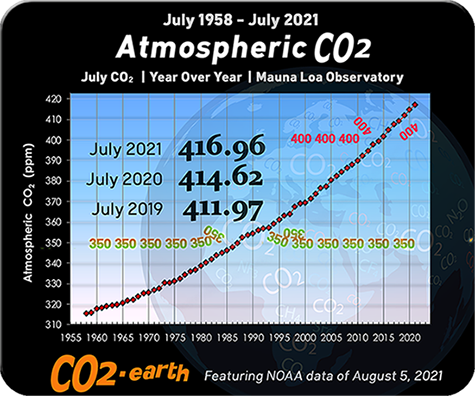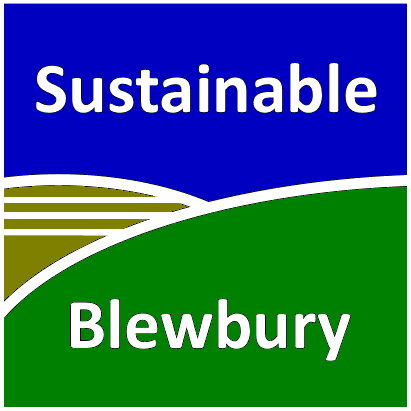
It is clear from scientific evidence of global warming, recent extreme weather events, and of depletion of natural resources and biodiversity, that in order for our children and future generations to have a habitable planet, Blewbury like all communities must act to change its way of life in just a few years. Sustainable Blewbury is driven by the need to end our dependence on fossil fuels, and to find ways in which we as a village can adapt to a more sustainable style of living, while retaining a good quality of life.
Many towns and villages locally and internationally have already started acting on a range of community initiatives aimed at simpler living – some links are given here. Transition Towns aiming to live with lower carbon have been set up, including Totnes and Lewes. "A future without oil could be better than the present if we use our imagination and think creatively".
Global heating is not just a scientific theory, it is already happening. The changes in climate will be far more than just rising termperatures: more extreme weather, life-threatening heat, droughts and huge wildfires, flooding and rising sea-level. Extensive regions will become uninhabitable. The huge challenge is to change how we live in order to minimise the effects of these extremely serious conditions. Change is needed at all levels: global, national and local.
Click on the figure below to get the LATEST CO2 data:

Pre-industrial value was 280 parts per million
Huge decrease in biodiversity
Along with climate change, we are seeing an enormous reduction in biodiversity. Many species are becoming extinct, and many others are shifting their habitats in reaction to changes in climate, which in many cases disrupts existing ecosystems.
The Earth only has finite amounts of natural resources, and many of the ones we use are running out. Cheap production becomes impossible, more extreme methods are used to extract necessary materials, and this often requires a great deal more energy and produces more pollution.
Water
A common element in some of the most serious effects of climate change is water. There are already many parts of the world where depletion of water supplies is a severe problem. The effects of climate change – including altered weather patterns, melting glaciers and rising sea levels – will produce both flooding and droughts affecting a large fraction of the world’s population and could cause huge and widespread social problems.
An open letter about the project

In 2010 this page contained a letter for the new decade which is reproduced here in part and updated. We noted that in just a few decades our lifestyles and prosperity have been transformed beyond measure by a dependency on fossil fuels. In 2017 the carbon dioxide level in the atmosphere was above 400 parts per million for the entire year. It is now about 50% above the pre-industrial level. The current level is unprecedented for at least the last 800,000 years. An impressive scientific consensus shows us that we humans are responsible for this rise. The consequences are evident in melting glaciers, record heatwaves, huge wildfires and more extreme weather. It is up to us as responsible individuals and as a community to heed these warnings through our actions and life-styles. Reaction to climate change is an absolute imperative – we cannot compromise. We have to act now – hard as it is to relate slow, impending climate change to daily life – since for sure, our children and grandchildren will inherit the consequences.
In the original letter we noted that Blewbury is fortunate in having a vibrant, caring and creative community. What sort of ‘view from the hill’ do we envisage in 10, 20, 50 years time? Do we have the vision to evolve into a model for community adaptation, leading simpler and less energy-dependent lives? We are part of a fast-growing movement of low-carbon communities in Oxfordshire and beyond, who are raising awareness of the issues and take actions on energy reduction, biodiversity restoration and related issues. Green shoots are appearing. Let us reflect on our priorities and be part of the solution rather than the problem.
Mike Edmunds
Founding Chair, Sustainable Blewbury
